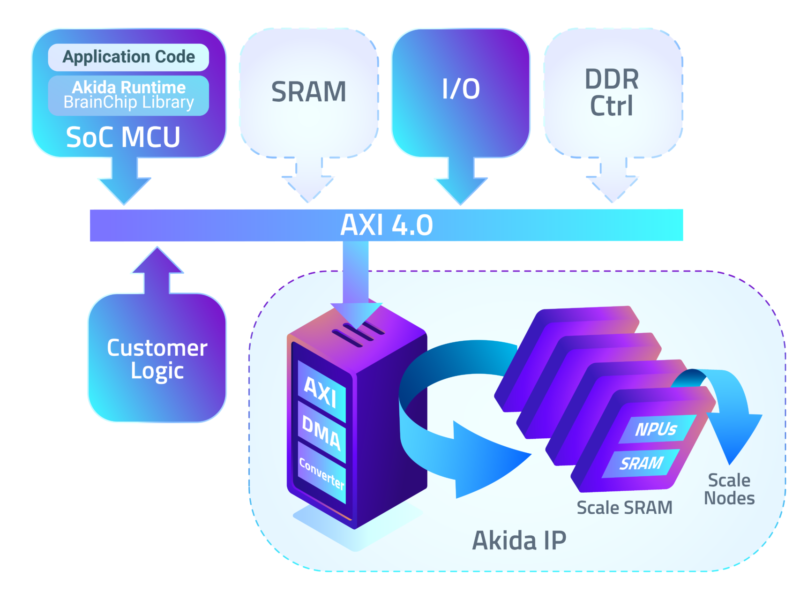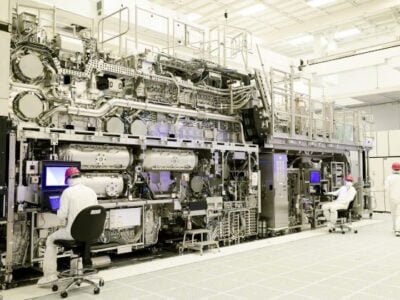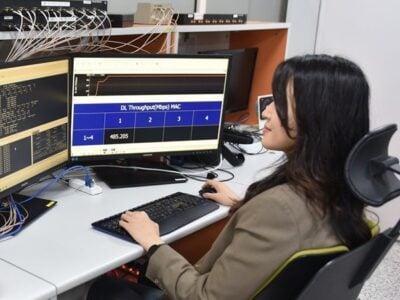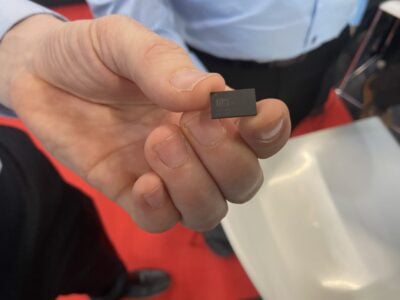
NASA funds rad-hard spiking Neural Network project
Spiking neural networks use a lot less power as they only trigger on events. Brainchip’s Akida Event Domain Neural Processor IP offers native support for SNNs with a power consumption of 3 pJ per synaptic operation in their 28nm CMOS implementation. The Akida Development Environment (ADE) uses industry-standard neural network development tools Tensorflow and Keras for robotic vision, navigation, communication, observation and system health management in future autonomous robotic systems.
The first step is to evaluate the radiation vulnerability of different parts of the IP on a 28nm process through the Akida Development Environment and define an architecture for a target system-on-chip (SoC).
The chip is expected to be built on 28nm, using the HARDSIL hardening process from Vorago Technologies in Austin, Texas, to harden specific blocks in the design. This is a cost-effective modification to commercial process flows that can be implemented quickly with minimal incremental mask and implant steps.
The next stage is to look at a hardened chip with an embedded neural processor unit for use within NASA and the Space community. Vorago has already hardened an ARM Cortex-M0+ core that can be used in interplanetary CubeSats and SmallSats, instruments bound for outer planets and heliophysics missions to harsh radiation environments.
BrainChip has started shipping development boards for the technology.
“The Akida NSoC has proven to provide significant power savings and is the complete integration of a neural network design,” said Louis DiNardo, CEO of BrainChip. “True AI Edge learning does not exist with current AI solutions and our ability to provide this and other features while significantly reducing both power consumption, size and the Bill-of-Materials (BOM) has attracted the attention of leading suppliers in the Smart Home, Smart Transportation and Smart City markets. We believe that these capabilities also will provide new solutions in Smart Healthcare applications that serve our mission of supporting Beneficial AI applications and improve the human condition globally in terms of diagnosis of infectious diseases, cancers and a wide array of challenging global health concerns.
Next: BrainChip ships Akida RTL to Socionext
However the RTL for the chip was only completed at the start of December. It was sent to manufacturing partner Socionext America (SNA). SNA will complete the physical design of the device and tape-out to TSMC for mask creation for volume production in 2021.
“The Akida device design will be transferred to TSMC for use in manufacturing production wafers in support of potential customer requirement in 2021 and beyond. This is a major milestone for the Company as we move to commercialize the Akida NSoC,” said DiNardo. “Through our partnership with SNA and TSMC we have world-class resources and expect to have a robust integrated circuit that suits their requirements for both performance and reliability.”
Related SNN articles
- SNN CHIP IS A FAST LEARNER
- SPIKING NEURAL NETWORK SoC LAUNCHED
- COMPLETE MACHINE LEARNING FRAMEWORK TARGETS NEUROMORPHIC SOC
- QUALCOMM-BACKED STARTUP ANNOUNCES AI PROCESSOR FAMILY
Other articles on eeNews Europe
- The year edge AI took off
- Commercial hydrogen electric aircraft in 2023
- Swiss spin-off to develop RISC-V edge AI chip
- Micro Magic details its 1GHz RISC-V processor
 If you enjoyed this article, you will like the following ones: don't miss them by subscribing to :
eeNews on Google News
If you enjoyed this article, you will like the following ones: don't miss them by subscribing to :
eeNews on Google News




